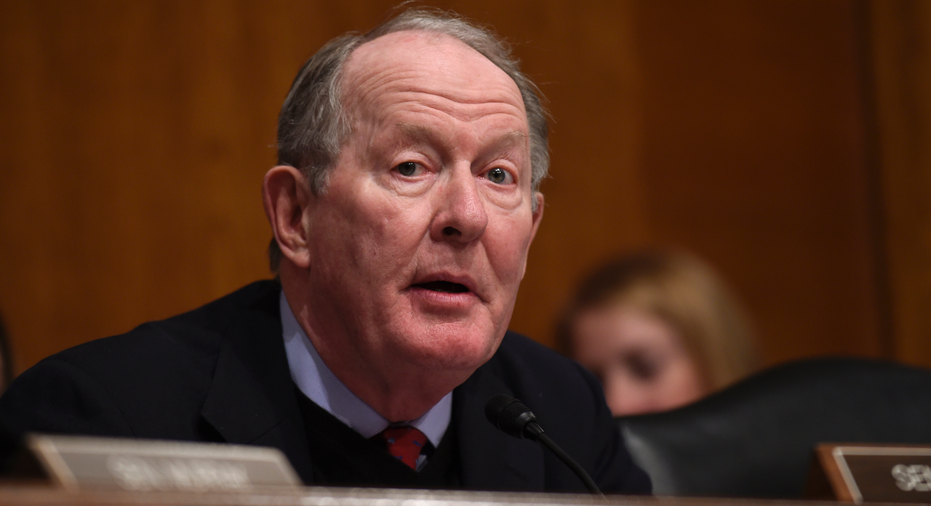Bipartisan drive to pay health insurers faces Senate hurdles

WASHINGTON – A bipartisan Senate effort to continue federal payments to insurers and avert a costly rattling of health insurance markets faces a dicey future. The uncertainty shows that last week's wreck of the Republican drive to repeal the Affordable Care Act hasn't blunted the issue's sharp-edged politics.
President Donald Trump is threatening to halt the payments in hopes of forcing Democrats to negotiate an end to the Obama-era law. The insurance industry and lawmakers from both parties say blocking the money would lead insurers to raise premiums for people buying individual policies and might induce companies to abandon some markets.
Into the fray has stepped Sen. Lamar Alexander, R-Tenn., chairman of the Senate Health, Education, Labor and Pensions Committee.
He said he will work with the committee's top Democrat, Sen. Patty Murray of Washington state, on a bill next month that would pay insurers through 2018. In exchange, he wants Democrats to agree to make it easier for states to choose their own health coverage standards that insurers must provide, and not heed consumer-friendly requirements of former President Barack Obama's law.
While that is an idea Democrats say they will discuss, it's unclear whether the two parties can reach a deal.
For the GOP's failed effort to repeal and replace Obama's overhaul, Senate Republicans used special rules allowing passage by a simple majority. But this developing bill would need 60 votes to succeed. Republicans hold a 52-48 advantage in the Senate, which means Democratic backing will be crucial.
Democrats will be reluctant to strike an agreement that would pull back far on Obama's protections, which include a set of services insurers must cover and guarantees that premiums for healthy and seriously ill people are equal.
"It's going to be hard to get common ground," said Sen. Chris Murphy, D-Conn., a committee member. "Republicans are going to want some initial flexibility" for coverage requirements, "and that's not an easy thing to achieve."
Republicans are divided, too.
Many, including Trump, have called the payments an insurers' bailout. Conservatives are reluctant to continue payments to help sustain a law the GOP has pledged for years to toss out.
"I was a total repeal guy," said Sen. Richard Shelby, R-Ala. "I don't know if I want to prop it up."
Added GOP Sen. Ted Cruz of Texas: "I think it's a mistake to bail out insurance companies."
Obama's law requires insurers to reduce out-of-pocket costs such as deductibles and copayments for millions of low- and middle-income customers. It also requires the government to reimburse insurers for those costs.
But a federal court found that Congress hasn't properly approved money to do that. Both Obama and Trump have continued making the payments as the case has dragged on.
Besides the outright opponents, some Republicans say they would be reluctant to support an Alexander bill unless whatever eased regulations Democrats agree to are worthwhile. It's unclear what Alexander or other Republicans are willing to accept.
"We certainly should get some structural change to bring down premiums in exchange for that," said Sen. Ron Johnson, R-Wis. "We can't just throw money at the problem."
That echoes what Senate Majority Leader Mitch McConnell, R-Ky., said last Friday after the Senate rejected the third health proposal he advanced, effectively sinking the repeal effort.
"Bailing out insurance companies with no thought of any kind of reform is not something I want to be part of," McConnell said.
Alexander said Wednesday that he has kept McConnell apprised of his effort. Asked if he had received a commitment that McConnell would bring such legislation to the full Senate, Alexander said, "Well, he doesn't know what bill we're going to have."
But Alexander does have allies.
"We'll eventually repeal Obamacare and put something in its place," said Sen. John Kennedy, R-La. "In the meantime, I think it's very important not to see any Americans get hurt."
If the GOP divisions persist, McConnell and House Speaker Paul Ryan, R-Wis., might have to decide whether to have votes on legislation opposed by substantial numbers of Republicans. That's always an uncomfortable proposition for party leaders.
"That's a question for McConnell," said the second-ranking Democratic senator, Illinois' Dick Durbin, said asked whether he thought the GOP leader would allow a vote on a bill opposed by many Republicans.
Durbin said if Republicans are truly concerned about keeping insurance markets stable, "they have to do something."
Would Ryan support a measure like Alexander's?
The speaker "believes repeal and replace is the best course of action and that the Senate needs to act," spokeswoman AshLee Strong said.



















